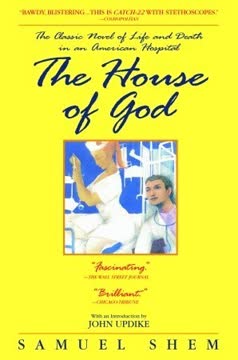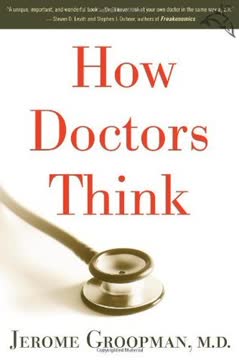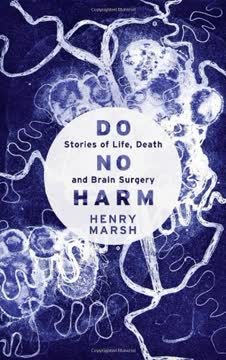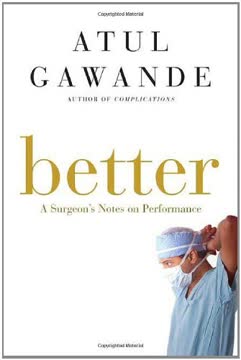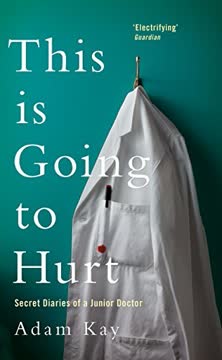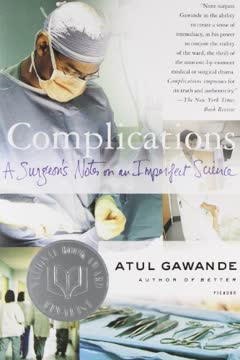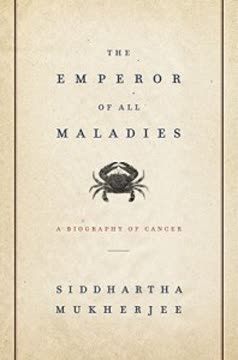Plot Summary
Baptism by Fire
Roy Basch, fresh from the Best Medical School, enters his internship at the House of God, a legendary teaching hospital. He is immediately overwhelmed by the chaos, exhaustion, and emotional brutality of the system. The hospital is a labyrinth of hierarchies, rituals, and unspoken rules, where the lowest rung—interns—are ground down by relentless work, sleep deprivation, and the suffering of patients. Roy's initial idealism is quickly battered by the reality of modern medicine: most patients are elderly, chronically ill, and beyond cure. The hospital's culture is one of cynicism, gallows humor, and emotional detachment, a necessary armor for survival. Roy's relationship with his girlfriend Berry, a psychologist, is strained as he struggles to process the trauma and absurdity of his new world. The year begins with fear, confusion, and a sense of being utterly unprepared for the responsibility of life and death.
The Gomer Paradox
The hospital is filled with "gomers"—elderly, demented, chronically ill patients who never seem to die, despite the best (or worst) efforts of the staff. The term "gomer" (Get Out of My Emergency Room) becomes a symbol of the system's dehumanization. Roy and his fellow interns learn that the gomers are both the bane of their existence and the heart of their daily work. The paradox is that while the young and curable die, the gomers linger on, immune to both disease and intervention. The staff's frustration with the gomers leads to dark humor, emotional distancing, and a sense of futility. The hospital's rules and routines seem designed to perpetuate suffering rather than alleviate it, and the interns are caught between their training to "do everything" and the reality that sometimes, the best care is to do nothing.
Survival Laws
The Fat Man, Roy's resident and mentor, introduces the "Laws of the House of God"—a set of irreverent, practical, and often subversive rules for surviving internship. These include "Gomers don't die," "At a cardiac arrest, the first procedure is to take your own pulse," and "The patient is the one with the disease." The Laws are a lifeline for the interns, offering a way to navigate the madness and protect themselves from burnout and despair. The Fat Man's wisdom is both comic and profound, teaching Roy that the system is rigged, that most interventions are futile or harmful, and that the real challenge is to remain human in an inhuman environment. The Laws become a secret code among the interns, a way to bond and resist the crushing weight of the hospital.
Buff, Turf, and Bounce
The delivery of medical care at the House of God is revealed to be a game of "buffing, turfing, and bouncing" (making charts look good), "turfing" (shifting patients to other services), and avoiding "bounces" (patients who return). The goal is not to cure but to survive, to minimize work, and to avoid blame. The interns become experts at manipulating the system, learning that the more they do, the worse patients get. The best care for gomers is often to do as little as possible, to avoid unnecessary tests and procedures, and to focus on placement—getting patients out of the hospital. The revolving door of admissions and discharges becomes a metaphor for the futility and absurdity of modern medicine. The interns' cynicism deepens, but so does their camaraderie.
The Fat Man's Gospel
The Fat Man emerges as the spiritual leader of the interns, a figure of humor, compassion, and subversion. He teaches Roy and his friends how to survive without losing their souls—by laughing, by caring for each other, and by refusing to buy into the system's lies. The Fat Man's approach is pragmatic: do nothing when nothing can be done, protect yourself, and find meaning in small acts of kindness. He is also a trickster, inventing absurd medical devices and schemes, and exposing the hypocrisy of the hospital's hierarchy. His mentorship is both a comfort and a challenge, forcing Roy to confront the limits of his own compassion and the compromises required to survive.
Sex, Sadness, and Sarcasm
The interns' lives are a blur of exhaustion, sexual escapades, and emotional turmoil. Sex becomes both a refuge and a symptom of their distress—a way to feel alive, to connect, or simply to escape. Relationships with nurses, fellow interns, and partners outside the hospital are fraught with confusion, guilt, and longing. The camaraderie among the interns is deepened by shared suffering, but also threatened by competition, jealousy, and the ever-present risk of emotional collapse. Sarcasm and dark humor are essential tools for coping, but they also mask a growing sense of sadness and loss.
The Death of Compassion
As the year grinds on, Roy and his friends become increasingly numb, detached, and cynical. The relentless exposure to suffering, death, and institutional indifference erodes their empathy and idealism. The hospital's culture rewards emotional distance and punishes vulnerability. The interns witness and participate in acts of cruelty, neglect, and absurdity, often justified by the need to survive. The death of young, curable patients is especially devastating, highlighting the impotence of medicine and the randomness of fate. Roy's relationship with Berry suffers as he becomes more isolated and unable to process his grief and guilt.
The Machinery of Medicine
The hospital is a temple of technology, filled with machines, monitors, and procedures that promise control but often deliver only alienation. The Medical Intensive Care Unit (MICU) is the ultimate expression of this: a place where bodies are kept alive by machines, but where the soul is lost. Roy becomes skilled at managing the machinery of medicine, but at the cost of his own humanity. The illusion of control is shattered by the reality of death, error, and the limits of knowledge. The more the interns master the system, the more they risk becoming machines themselves.
Cracks in the System
The pressures of internship take their toll. Interns crack under the strain—some become addicted, some have breakdowns, some contemplate or commit suicide. The system offers little support or understanding, responding to tragedy with denial, blame, or bureaucratic indifference. The suicide of Wayne Potts, a gentle and compassionate intern, is a turning point, exposing the cost of the system's brutality and the failure of the hierarchy to care for its own. The interns are left to mourn and make sense of the loss on their own, further deepening their sense of alienation and rage.
The Breaking Point
As the year draws to a close, the interns reach a breaking point. Some rebel, refusing to continue in internal medicine, seeking escape in other specialties or leaving medicine altogether. Others are broken, conforming to the system's demands and perpetuating its cycle of abuse. The hospital's leadership is confronted with the consequences of its policies, but remains largely unchanged. The interns' anger and grief boil over in confrontations with their superiors, but the system absorbs the shock and continues. The only hope lies in the bonds of friendship and the possibility of change from within.
The Cost of Survival
The price of survival is high. The interns have lost innocence, idealism, and, in some cases, their capacity for compassion. They have learned to survive, but at the cost of becoming hardened, cynical, and emotionally scarred. Some find solace in humor, friendship, or love; others are left adrift. The experience of internship is both a crucible and a wound, shaping the doctors they will become but also leaving lasting damage. The question remains: can they reclaim their humanity, or is the cost too great?
The Shadow of Loss
The aftermath of the year is haunted by loss—of patients, friends, and parts of themselves. Roy is tormented by memories of suffering, death, and his own complicity in the system's failures. The shadow of loss falls across his life, threatening to overwhelm him with guilt and despair. With Berry's help, he begins to confront his feelings, to mourn, and to seek a way forward. The process is painful and uncertain, but it offers the possibility of healing and growth.
Reclaiming Humanity
Roy's journey is one of reclaiming his capacity for feeling, connection, and compassion. Through therapy, friendship, and love, he begins to thaw the emotional numbness that has protected him but also isolated him. He recognizes the importance of "being with" others—patients, friends, loved ones—as the true heart of medicine and life. The challenge is to integrate the lessons of survival with the need for meaning and connection, to find a way to be both a doctor and a human being.
The Choice to Change
As the internship ends, Roy and several friends choose not to continue in internal medicine, seeking specialties or paths that offer the hope of healing rather than harm. Psychiatry, with its focus on "being with" rather than "doing to," becomes a symbol of this new direction. The decision is both an act of rebellion and a leap of faith, a refusal to perpetuate the cycle of abuse and a commitment to personal growth. The system resists change, but the seeds of transformation are planted.
The End and the Beginning
The year ends with farewells, reflections, and a sense of both loss and possibility. Roy leaves the House of God, uncertain of his future but determined to reclaim his humanity and to seek a life of meaning, connection, and compassion. The scars of the year remain, but so does the hope of healing. The story closes with Roy and Berry together, looking toward a new beginning, and with the recognition that the journey to become a doctor—and a human being—is never truly finished.
Characters
Roy Basch
Roy is the protagonist and narrator, a bright, sensitive, and ambitious young doctor whose internship at the House of God shatters his illusions about medicine. Initially driven by a desire to heal and help, he is quickly overwhelmed by the brutality, absurdity, and emotional cost of the system. Roy's journey is one of survival, disillusionment, and ultimately, the struggle to reclaim his humanity. His relationships—with Berry, the Fat Man, and his fellow interns—are central to his development. Roy is introspective, self-critical, and deeply affected by the suffering he witnesses and the compromises he makes. His psychological arc moves from idealism to cynicism to a hard-won, fragile hope.
The Fat Man (Fats)
The Fat Man is Roy's resident and the spiritual leader of the interns. He is brilliant, irreverent, and deeply pragmatic, having learned to survive the system without losing his sense of humor or compassion. Fats invents the "Laws of the House of God," teaching the interns how to navigate the madness and protect themselves. He is both a trickster and a sage, exposing the hypocrisy of the hierarchy and modeling a way to care without being destroyed. Fats's mentorship is crucial for Roy, offering both comfort and challenge. He is a complex figure, embodying both the best and worst of medical culture.
Berry
Berry is Roy's girlfriend, a clinical psychologist who serves as his confidante, critic, and emotional anchor. She is intelligent, compassionate, and unafraid to challenge Roy's defenses and rationalizations. Berry's outsider perspective allows her to see the damage the system inflicts and to push Roy to confront his feelings and choices. Their relationship is strained by the pressures of internship, but ultimately, Berry helps Roy begin to heal and reclaim his capacity for love and connection.
Chuck
Chuck is a black intern from Memphis, Roy's close friend and ally. Outwardly laid-back and indifferent, Chuck uses humor and detachment to cope with the racism, exhaustion, and absurdity of the hospital. He is competent, resilient, and quietly supportive, but also struggles with isolation and the loss of his own dreams. Chuck's journey mirrors Roy's in many ways, and their friendship is a source of strength and solace.
The Runt (Harold Runtsky)
The Runt is a short, anxious, and self-doubting intern, the product of two psychoanalyst parents. He is plagued by insecurity, sexual frustration, and a desperate need for approval. Over the course of the year, the Runt's sexual awakening and growing competence are both comic and poignant. He represents the vulnerability and longing for connection that the system suppresses.
Wayne Potts
Potts is a Southern intern, sensitive, compassionate, and ill-suited to the brutality of the House. He is haunted by guilt over the death of a patient (the Yellow Man) and ultimately succumbs to despair, committing suicide. Potts's tragedy is a searing indictment of the system's failure to care for its own and the cost of emotional isolation.
Jo
Jo is a female resident, brilliant, competitive, and emotionally rigid. She embodies the system's values of perfectionism, control, and denial of vulnerability. Jo's inability to connect with patients or colleagues leads to her own breakdown and serves as a warning of what happens when survival becomes the only goal.
The Fish (Chief Resident)
The Fish is the Chief Resident, a careerist who is more concerned with appearances and advancement than with the well-being of patients or interns. He is a master of the hospital's bureaucracy and rituals, but emotionally distant and often clueless about the real suffering around him.
Little Otto Kreinberg
Little Otto is a private doctor, once a promising researcher, now embittered and hostile. He represents the failure of the system to reward talent or compassion, and the way in which disappointment can curdle into cruelty.
Molly
Molly is a nurse with whom Roy has an affair. She is sensual, playful, and emotionally open, offering Roy a respite from the hospital's brutality. Their relationship is both a source of comfort and a symptom of Roy's desperation to feel alive.
Plot Devices
The Laws of the House of God
The "Laws" are a set of darkly comic, subversive rules that encapsulate the hard-won wisdom of surviving internship. They serve as both a coping mechanism and a critique of the system, highlighting the gap between official doctrine and lived reality. The Laws structure the narrative, offering both humor and insight, and are a recurring motif that binds the interns together.
Buffing, Turfing, and Bouncing
These terms describe the strategies interns use to minimize work, avoid blame, and survive the system. Buffing is making charts look good; turfing is shifting patients to other services; bouncing is when patients return. These devices satirize the bureaucracy and futility of modern medicine, and serve as metaphors for emotional avoidance and institutional failure.
The Gomer
The gomer is both a literal patient and a symbol of the system's failure to care. The endless cycle of treating gomers, who never die and never improve, becomes a metaphor for the emotional deadening and absurdity of the hospital. The gomer is also a mirror for the interns' own fears of aging, death, and loss of humanity.
The Fat Man's Mentorship
The Fat Man's guidance is both a lifeline and a source of moral ambiguity. His teachings foreshadow the choices Roy and his friends must make, and his own contradictions highlight the difficulty of remaining human in an inhuman system.
The Breaking Point
The narrative structure builds toward moments of crisis—breakdowns, suicides, and confrontations—that force the characters to confront the cost of survival. These moments are foreshadowed by the gradual erosion of empathy and the accumulation of loss.
The Shadow of Loss
The motif of loss—of patients, friends, and parts of oneself—runs throughout the novel. The inability to mourn or process grief is both a symptom and a cause of the characters' suffering. The narrative structure uses repetition, flashbacks, and dreams to explore the psychological impact of loss and the possibility of healing.
Analysis
Through Roy Basch's journey, Samuel Shem critiques a system that values procedure over compassion, survival over healing, and bureaucracy over humanity. The novel's dark humor, irreverent "Laws," and vivid characters reveal the emotional cost of training, the dangers of repression, and the necessity of connection and mourning. The story is both a warning and a call to action: to remain human in the face of suffering, to resist the culture of detachment, and to seek meaning in "being with" others rather than simply "doing to" them. The House of God remains a powerful indictment of institutional cruelty and a testament to the resilience—and fragility—of the human spirit.
Last updated:
FAQ
Synopsis & Basic Details
What is The House of God about?
- Internship's Brutal Reality: The House of God follows Roy Basch, a bright but naive medical intern, through his harrowing first year at a prestigious teaching hospital. He confronts overwhelming exhaustion, emotional trauma, and the dehumanizing aspects of a medical system focused on procedure over patient well-being.
- Survival in Chaos: Roy and his fellow interns, guided by their cynical yet compassionate resident, the Fat Man, learn a set of subversive "Laws of the House of God" to navigate the absurdities and cruelties of their daily lives, particularly concerning the chronically ill elderly patients dubbed "gomers."
- Loss of Idealism: The narrative charts Roy's descent from idealism into cynicism and emotional numbness, as he grapples with the futility of many medical interventions, the suffering of patients, and the personal cost of survival, impacting his relationships and sense of self.
Why should I read The House of God?
- Unflinching Medical Realism: Readers should delve into The House of God for its raw, unvarnished portrayal of medical internship, offering a stark contrast to idealized depictions and revealing the intense psychological and emotional toll on young doctors. It's a crucial read for understanding the systemic pressures in healthcare.
- Darkly Humorous Critique: The novel masterfully blends biting satire and gallows humor with profound insights, making it both entertaining and thought-provoking. It challenges readers to question the ethics and efficacy of modern medicine, particularly the dehumanization of patients and the burnout of practitioners.
- Enduring Thematic Relevance: Despite being set in the 1970s, its themes of institutional dysfunction, the struggle for compassion, and the search for meaning in a demanding profession remain acutely relevant. It offers a powerful exploration of human resilience, moral compromise, and the quest for authenticity.
What is the background of The House of God?
- 1970s Medical Culture: Set in the early 1970s, the novel reflects a specific era in American medicine characterized by intense, often brutal, internship schedules, burgeoning medical technology, and a hierarchical, male-dominated hospital environment. The author, Samuel Shem (Dr. Stephen Bergman), drew heavily from his own internship experiences, lending the narrative a visceral authenticity.
- Post-Watergate Cynicism: The backdrop of Nixon's resignation and the Watergate scandal subtly mirrors the internal corruption and disillusionment within the hospital. The pervasive sense of societal deceit and moral decay outside the hospital walls echoes the ethical compromises and systemic failures Roy and his colleagues encounter daily.
- Critique of Institutional Power: The "House of God" itself, a prestigious teaching hospital, symbolizes a powerful institution that, despite its noble founding (by "American People of Israel when their medically qualified Sons and Daughters could not get good internships because of discrimination"), has become a self-serving entity where the "House Staff" (interns) are at the bottom of a "pyramid" of abuse.
What are the most memorable quotes in The House of God?
- "GOMERS DON'T DIE.": This iconic Law (Law Number One) encapsulates the novel's dark humor and the interns' frustration with chronically ill patients who seem to defy death, highlighting the futility of many medical interventions and the emotional toll on caregivers. It defines the gomer concept, central to the The House of God analysis.
- "AT A CARDIAC ARREST, THE FIRST PROCEDURE IS TO TAKE YOUR OWN PULSE.": Law Number Three, delivered by the Fat Man, is a profound lesson in self-preservation amidst chaos. It emphasizes the importance of maintaining composure and self-awareness in high-stress medical emergencies, a key Fat Man's wisdom insight.
- "THE PATIENT IS THE ONE WITH THE DISEASE.": Law Number Four, a seemingly simple statement, becomes a crucial psychological defense. It teaches interns to detach from personal responsibility for a patient's illness or outcome, preventing emotional burnout and highlighting the limits of a doctor's control, a core themes in The House of God element.
What writing style, narrative choices, and literary techniques does Samuel Shem use?
- First-Person, Stream-of-Consciousness: The novel is narrated by Roy Basch in a highly subjective, often stream-of-consciousness style, immersing the reader directly into his fragmented thoughts, anxieties, and observations. This technique effectively conveys the interns' sleep deprivation and psychological disarray, central to Roy Basch's psychological complexity.
- Satirical and Ironic Tone: Shem employs biting satire and pervasive irony to critique the medical establishment, juxtaposing the noble ideals of healing with the grim realities of hospital life. The humor is often dark, serving as a coping mechanism for the characters and a critical lens for the reader, a hallmark of The House of God's literary techniques.
- Repetition and Juxtaposition: Recurring phrases (like the Laws), character archetypes (gomers, slurpers), and contrasting scenes (France vs. the House, sex vs. death) create a cyclical, almost hallucinatory rhythm. This repetition underscores the relentless nature of internship and the interns' struggle to maintain their sanity and humanity, enhancing the novel's symbolism and themes.
Hidden Details & Subtle Connections
What are some minor details that add significant meaning?
- Nixon's Resignation as a Mirror: Roy frequently references Nixon's political downfall, particularly his resignation and "pathetically inappropriate V-for-defeat sign." This external political corruption and loss of public trust subtly mirrors the internal moral decay and disillusionment Roy experiences within the House of God, linking national cynicism to the hospital's systemic failures in The House of God analysis.
- The Policemen's Philosophical Role: Sergeant Gilheeny and Officer Quick, initially appearing as comic relief, evolve into unexpected philosophical commentators. Their discussions on Freud, human nature, and the "continuity of the unconscious processes" provide an external, yet deeply insightful, perspective on the interns' psychological struggles, offering a unique character connection and a meta-commentary on the novel's themes.
- The Wing of Zock's Symbolic Construction: The ongoing demolition and construction of "The Wing of Zock" throughout the year serves as a constant, noisy backdrop. It symbolizes the hospital's relentless pursuit of wealth and expansion ("There's a lotta money in shit") over genuine patient care, and its promise of "hope" is ironically contrasted with the suffering within its existing walls, a key symbolism in The House of God.
What are some subtle foreshadowing and callbacks?
- Potts's Revolver and Father's Death: Early in the novel, Potts's father is mentioned as having carried a revolver and died in a gutter, a detail that subtly foreshadows Potts's own tragic suicide by jumping from a hospital window. This callback emphasizes the cyclical nature of despair and the inherited trauma within the medical profession, a poignant Wayne Potts's motivation insight.
- Roy's Initial "Grandiosity" in France: In the opening chapter, Roy feels "grand" and "loves these gomers now" when he sees them in a French hospice, a reaction he later fears as "the cruelty of that laughter." This early, detached amusement foreshadows his later descent into cynicism and the emotional numbness he develops to cope, highlighting the psychological complexities of his journey.
- The Fat Man's "Anal Mirror" as a Metaphor: The Fat Man's seemingly absurd invention, "Dr. Jung's Anal Mirror," is initially presented as a joke but subtly foreshadows his later success and his philosophy of self-examination. It represents a crude but honest attempt to confront hidden truths, mirroring the interns' eventual need to look inward at their own "assholes" (flaws and repressed emotions) to heal, a unique symbolism explained.
What are some unexpected character connections?
- The Leggo's Hidden Vulnerability: Despite his rigid, cold demeanor and "papal humility," the Leggo reveals a surprising connection to Dr. Sanders, the "First Nigro in the House," calling him "Walter" and reminiscing about their shared internship. This brief moment hints at a deeper, repressed humanity beneath his authoritarian exterior, offering a nuanced Leggo's motivations analysis.
- The Policemen's Mentorship of Dubler: Gilheeny and Quick recount their "education" of Grenade Room Dubler, a legendary intern, in the "pornographic side of our beat." This unexpected mentorship highlights the informal, often crude, ways knowledge and coping mechanisms are passed down in the House, revealing a hidden character connection and the dark humor of survival.
- Molly's Connection to the Nuns: Molly, Roy's sensual nurse-lover, reveals she was "fed-up Catholic who's had it up the kazootie with the nuns." This background adds a layer of rebellion and a search for freedom to her character, suggesting her sexual liberation is a direct reaction to a repressive upbringing, providing deeper Molly's motivations context.
Who are the most significant supporting characters?
- The Policemen (Gilheeny & Quick): These two officers, often found drinking coffee in the E.W., serve as external observers and philosophical commentators. They offer a unique, detached perspective on the hospital's chaos, providing historical context (Dubler's stories) and psychological insights (Freud, Cohen), acting as a Greek chorus for Roy's journey and highlighting themes in The House of God.
- Gracie from Dietary and Food Services: Gracie, initially a minor figure, becomes crucial to the Fat Man's "Great American Medical Invention" (the diarrhea cure). Her belief in "laetrile" and her role in the VA research scheme underscore the pervasive quackery and the pursuit of profit within the medical system, even among seemingly peripheral staff, adding to the novel's satirical elements.
- Crazy Abe: The old man who lives in the E.W. waiting room, Crazy Abe, is a poignant symbol of the forgotten and marginalized. His presence highlights the hospital's role as a last resort for the homeless and mentally ill, and his occasional lucid comments or "electric glint" in his eye serve as a stark reminder of the humanity often overlooked, a subtle symbolism explained.
Psychological, Emotional, & Relational Analysis
What are some unspoken motivations of the characters?
- Jo's Hunger for Validation: Jo's relentless perfectionism and "fanaticism" are driven by an unspoken need for external validation, stemming from her family's disintegration and her "annihilat[ion of] her twin brother by getting into Radcliffe." Her dedication to medicine is a desperate attempt to fill the "emptiness of her life," making her a tragic figure in Jo's motivations.
- The Leggo's Quest for Love/Approval: The Chief of Medicine, the Leggo, despite his cold exterior, implicitly seeks the "love" of his interns, reminiscing about how "my boys always loved me before" at his previous hospital. His rigid adherence to traditional medicine and his desire for "electric moments" are a compensatory mechanism for a lack of warmth and applause in his own life, revealing deeper Leggo's psychological complexities.
- The Fat Man's Fear of Insignificance: Beneath his boisterous confidence and pursuit of "fortoona," the Fat Man harbors a fear of being "not crooked enough" and a wistful longing to be "G. Gordon Liddy." His elaborate schemes and inventions, including the Anal Mirror, are not just for money but also a way to assert his genius and avoid the anonymity he associates with poverty, a key aspect of Fat Man's motivations.
What psychological complexities do the characters exhibit?
- Roy's Dissociation and Paranoia: Roy exhibits profound dissociation, particularly after traumatic events like Potts's suicide, where he "obliterate[s] each day, in order to start the next one." His increasing paranoia ("Everyone's out to get me") is a primitive defense mechanism against the overwhelming stress and betrayal he feels, illustrating Roy Basch's psychological complexity and the impact of the internship.
- Hooper's Thanatophilia (Love of Death): Hyper Hooper's gleeful pursuit of postmortems and his "getting off on death" reveal a complex psychological response to the constant exposure to mortality. His "Mouseketeer" cheerfulness masks a morbid fascination, suggesting a coping mechanism that veers into the pathological, a disturbing character analysis of how some interns adapt.
- Chuck's "Cool" as a Survival Mask: Chuck's consistent "studied indifference" and "being cool" are explicitly revealed as an act, a necessary defense mechanism learned from his "dirt-poor" upbringing in Memphis. This "cool" exterior hides his pain and vulnerability, preventing others from "us[ing] him worse," showcasing a sophisticated Chuck's motivations and resilience.
What are the major emotional turning points?
- Potts's Suicide as a Catalyst for Despair: Wayne Potts's suicide is a devastating emotional turning point, shattering the interns' illusions of invulnerability and forcing them to confront the brutal cost of the system. It plunges Roy and his friends into a deep sense of guilt and despair, highlighting the shadow of loss and the system's failure to care for its own.
- Roy's KCL Injection of Saul: Roy's decision to inject Saul, a dying leukemic patient, with KCL to end his suffering is a morally ambiguous but emotionally pivotal moment. It marks Roy's crossing a line, driven by compassion and rage, and leaves him haunted by the phrase "I'd killed a human being!", a critical point in Roy Basch's emotional analysis.
- Berry's Confrontation and "Machine" Label: Berry's accusation that Roy has become a "machine" is a stark emotional turning point for their relationship and for Roy's self-perception. It forces him to acknowledge his emotional numbness and the distance he has created, initiating his painful journey toward reclaiming humanity and confronting his relationship on rocks.
How do relationship dynamics evolve?
- Interns' Camaraderie as a Lifeline: The relationships among the interns (Roy, Chuck, Runt, Eddie, Hooper, Potts) evolve from initial competition to a deep, shared camaraderie. They form a "code of caring," offering mutual support, dark humor, and a sense of belonging that is essential for their survival against the dehumanizing system, a central themes in The House of God.
- Roy and Berry's Strain and Reconnection: Roy's relationship with Berry deteriorates significantly due to his emotional withdrawal, cynicism, and infidelity. Berry acts as his "anchor and conscience," pushing him to confront his trauma. Their eventual reconciliation, marked by Roy's confession and Berry's unwavering support, signifies his first step towards healing and reclaiming humanity.
- Intern-Nurse Sexual Dynamics: The novel explores the complex and often exploitative sexual relationships between interns and nurses (e.g., Roy and Molly, Runt and Angel, Chuck and Hazel). These liaisons serve as both a desperate escape from the horrors of the hospital and a means of practical survival (e.g., clean sheets, quick care), highlighting the blurred lines of professional and personal boundaries in a high-stress environment.
Interpretation & Debate
Which parts of the story remain ambiguous or open-ended?
- The Fat Man's True Intentions: While presented as a mentor, the Fat Man's motivations for his "inventions" (like the Anal Mirror) and his "finessing" of the system remain somewhat ambiguous. Is he a genuine altruist, a cynical opportunist, or a complex blend of both? His final statement, "It might not be, after all," regarding medicine being "big enough" for him, leaves his ultimate satisfaction and purpose open to interpretation in Fat Man's motivations.
- The Nature of "Gomers": The definition and treatment of "gomers" are central to the novel's ethical ambiguity. Are they truly "human beings who have lost what goes into being human beings," as the Fat Man claims, or are they simply victims of a system that dehumanizes them? The interns' laughter and cruelty towards them, juxtaposed with moments of genuine sadness, leave the reader to grapple with the moral implications of their actions and the concept of gomer explained.
- The Efficacy of Psychiatry: Roy's decision to pursue psychiatry is presented as a path to "reclaiming humanity" and "growth." However, the novel also satirizes psychiatry (e.g., Runt's psychoanalyst parents, Cohen's "Ban takes the worry out of being close"). The ultimate success or failure of psychiatry as a "cure" for the interns' trauma, or as a truly different path, remains an open question at the novel's close, inviting The House of God interpretation.
What are some debatable, controversial scenes or moments in The House of God?
- The Black Crow Award: The introduction of the "Black Crow Award" for the intern with the most postmortem permissions is highly controversial. It explicitly incentivizes death, raising profound ethical questions about the medical hierarchy's values and the potential for doctors to prioritize research or personal gain over patient care. This scene sparks debate about the inherent corruption within the system, a key The House of God controversy.
- Roy's Euthanasia of Saul: Roy's act of injecting Saul with KCL to end his suffering is a deeply debatable moment. While driven by compassion for Saul's unbearable pain and a desire to prevent a "messy" death like Dr. Sanders's, it is an act of euthanasia, illegal and morally fraught. This scene forces readers to confront the ethical dilemmas of end-of-life care and a doctor's role in alleviating suffering, a critical Roy Basch's motivations debate.
- The "Buffing and Turfing" Philosophy: The Fat Man's "Laws" and the widespread practice of "buffing and turfing" patients are presented as necessary survival strategies but are inherently controversial. They involve deception, manipulation, and a prioritization of the doctors' well-being over the patients'. This challenges the traditional image of selfless medical care, prompting debate on whether such practices are justifiable in a broken system, a core themes in The House of God discussion.
The House of God Ending Explained: How It Ends & What It Means
- Escape and Transformation: Roy Basch, along with Chuck, the Runt, Eddie, and Hooper, decides to leave internal medicine, with many opting for psychiatry. Roy takes a year off, eventually choosing psychiatry, a field focused on "being with" patients rather than "doing to" them. He symbolically discards his black bag, its instruments scattering in a "rainbow," signifying his rejection of the old medical paradigm and his embrace of a new, more humanistic path. This ending highlights The House of God's themes of personal growth and the search for meaning.
- **Lingering Scars and Hope
Review Summary
The House of God receives mixed reviews, with some praising its honest portrayal of medical internships and dark humor, while others criticize its dated sexism and excessive sexual content. Many readers find it relatable and insightful, particularly those in the medical field. The book's depiction of burnout, cynicism, and the challenges of residency resonates with many, though some feel it exaggerates or misrepresents certain aspects. Despite its flaws, it remains a influential work in medical literature, sparking discussions about healthcare and medical education.
House of God Series
Similar Books
Download PDF
Download EPUB
.epub digital book format is ideal for reading ebooks on phones, tablets, and e-readers.
